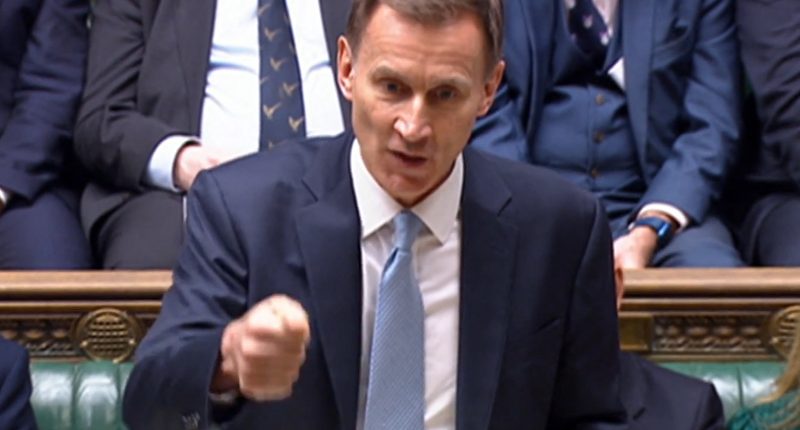MILLIONS on Universal Credit and other benefits are getting a £470 pay rise in April.
The Government confirmed in its Spring Budget documents today the benefits will be uprated by 6.7%, the CPI measure of inflation from September last year.
Chancellor Jeremy Hunt first revealed that payments will be going up in line with inflation in his Autumn Statement last November.
The payment boost will come into effect in April and the average family on Universal Credit will be around £470 a year better off.
The Department for Work and Pensions (DWP) usually uses September’s inflation figures to decide on uprating benefit and pension payments from the following April.
Last Autumn, there had been concerns the government was planning to use a lower inflationary figure to uprate the welfare payments.
READ MORE SPRING BUDGET
Spring Budget at a glance
The annual inflation rate for September 2023 came in at 6.7%, compared to the far lower 4.6% for October.
But today’s documents reveal they will rise in line with last September’s inflation figure.
Of course, the amount your benefits will rise depends on what you’re receiving.
Nine benefits have to rise in line with the consumer price index (CPI) rate of inflation because it’s law.
Most read in Money
But millions on Universal Credit and other benefits will see their payments go up too.
The increase will come into effect from next month and boost the payments for the average family on Universal Credit by £470 a year.
But the dates they will rise vary depending on the type of benefit and when you normally get paid.
Key documents published by the government since the Autumn Statement reveal that the benefits cap will remain frozen at its current level – meaning 85,000 could be up to £53 worse off.
The threshold is a limit on the total amount households can get.
How will Universal Credit payments increase?
More than five million people are claiming Universal Credit.
The current standard allowance for single UC claimants under the age of 25 is £292.11 a month.
This will increase by 6.7% to £311.68 – an increase of £19.57.
The standard allowance for single claimants over the age of 25 is £368.74 a month.
This means payments will increase by £24.71 a month to £393.45.
If you live with your partner and are both under 25, your monthly payment will increase from £458.51 to £489.23 – a rise of £30.72.
If you live with your partner and either of you are 25 or over, you could see a rise of £38.78 from £578.82 to £617.60 a month.
Of course, how much extra you’ll get a month depends on your current benefit level.
To calculate yours, simply multiply your monthly benefit amount by 1.067.
What other benefits will be increasing?
The following are legally required to have their payments rise with the previous September’s rate of inflation each April:
But in the documents released alongside the Autumn Statement, the Chancellor also confirmed that Blind Person’s Allowance (BPA) and Married Couple’s Allowance (MCA) will also go up.
These will also increase by the September 2023 CPI figure of 6.7%.
The BPA will be valued at £3,070 and the MCA will be valued at between £4,280 and £11,080.
For the full list of benefits going up and by how much see our story.
READ MORE SUN STORIES
It’s always worth checking that you’re getting all the benefits you’re entitled to by using a free benefits checker.
For exactly how much your payments will go up see our explainer.
How to check what benefits you could be entitled to
The quickest way to see what benefits you may be able to claim is to use one of the three benefit calculators recommended by Gov.uk.
Each one is free to use. They are:
Before using the tools, make sure you have key financial information to hand, such as bank and savings statements, and information on pensions and existing benefits.
If you live with a partner or family, get their basic financial information together too as this could affect your claim.
For each of these, you’ll be asked information about your circumstances, such as your current employment and income.
You’ll also need to give information about yourself, including your age and who you live with.
You can then use the contact information on Gov.uk to get the ball rolling and apply for what you’re owed.
Of course, the tools only provide an indicator of what benefits you can claim – and usually don’t include means tested benefits, so you may be entitled to even more.
Do you have a money problem that needs sorting? Get in touch by emailing [email protected].
Plus, you can join our Sun Money Chats and Tips Facebook group to share your tips and stories.












